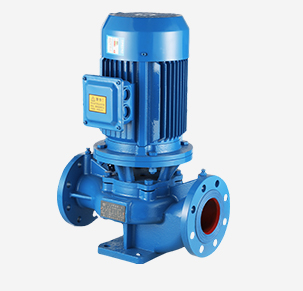TEL:
+86 13120555503
Miao
- Afrikaans
- Albanian
- Amharic
- Arabic
- Armenian
- Azerbaijani
- Basque
- Belarusian
- Bengali
- Bosnian
- Bulgarian
- Catalan
- Cebuano
- Corsican
- Croatian
- Czech
- Danish
- Dutch
- English
- Esperanto
- Estonian
- Finnish
- French
- Frisian
- Galician
- Georgian
- German
- Greek
- Gujarati
- Haitian Creole
- hausa
- hawaiian
- Hebrew
- Hindi
- Miao
- Hungarian
- Icelandic
- igbo
- Indonesian
- irish
- Italian
- Japanese
- Javanese
- Kannada
- kazakh
- Khmer
- Rwandese
- Korean
- Kurdish
- Kyrgyz
- Lao
- Latin
- Latvian
- Lithuanian
- Luxembourgish
- Macedonian
- Malgashi
- Malay
- Malayalam
- Maltese
- Maori
- Marathi
- Mongolian
- Myanmar
- Nepali
- Norwegian
- Norwegian
- Occitan
- Pashto
- Persian
- Polish
- Portuguese
- Punjabi
- Romanian
- Russian
- Samoan
- Scottish Gaelic
- Serbian
- Sesotho
- Shona
- Sindhi
- Sinhala
- Slovak
- Slovenian
- Somali
- Spanish
- Sundanese
- Swahili
- Swedish
- Tagalog
- Tajik
- Tamil
- Tatar
- Telugu
- Thai
- Turkish
- Turkmen
- Ukrainian
- Urdu
- Uighur
- Uzbek
- Vietnamese
- Welsh
- Bantu
- Yiddish
- Yoruba
- Zulu
Telephone: +86 13120555503
Email: frank@cypump.com
Feb . 16, 2025 15:42 Back to list
septic pumps
Choosing the right pump for septic systems is crucial to ensure the efficient and long-term functionality of residential and commercial waste management. Septic system pumps play a pivotal role in moving wastewater from one location to another, especially in areas where gravity alone cannot accomplish the task. This article will explore the intricacies of selecting an appropriate pump for septic systems by sharing authentic experiences, offering expert advice, asserting authoritative recommendations, and building trust through transparent information.
The expertise shared by seasoned professionals underlines the importance of understanding pump capacity. Not all pumps are created equal, and selecting one with the appropriate gallon-per-minute (GPM) rating ensures that the pump can handle the household's peak wastewater flow without overexertion. A pump operating beyond its intended capacity is prone to frequent failures, leading to costly repairs and potential unsanitary conditions. It’s wise to have a professional evaluate your system's requirements to recommend an appropriate pump size that matches your household’s demand. Authority in the industry supports that regular maintenance extends the lifespan of your septic pump and prevents failures. Implementing a periodic inspection schedule ensures that any wear and tear, clogs, or operational issues are identified and rectified early. Trustworthy brands that offer warranties and have an established reputation in the waste management system markets are typically recommended. Brands known for quality and durability reduce long-term operational costs and ensure smooth operations. For homeowners new to septic systems, trusting a pump brand with a strong support service team can be a profound relief. Brands that provide excellent customer service, comprehensive installation guidance, and follow-up care simplify the process, assuring new users of their purchase. In conclusion, choosing the correct pump for a septic system is not about making a quick purchase but a thoughtful investment. It involves assessing specific environmental factors, understanding technical requirements, and selecting a reliable brand that guarantees quality and reliability. Not only does this ensure operational excellence, but it also fosters a sustainable and hassle-free waste management solution tailored uniquely to your setting. By sharing this knowledge and practical experience, this article aims to guide you in making informed choices that balance performance and economy, embodying the key pillars of expertise, authority, and trustworthiness in your septic system management journey.


The expertise shared by seasoned professionals underlines the importance of understanding pump capacity. Not all pumps are created equal, and selecting one with the appropriate gallon-per-minute (GPM) rating ensures that the pump can handle the household's peak wastewater flow without overexertion. A pump operating beyond its intended capacity is prone to frequent failures, leading to costly repairs and potential unsanitary conditions. It’s wise to have a professional evaluate your system's requirements to recommend an appropriate pump size that matches your household’s demand. Authority in the industry supports that regular maintenance extends the lifespan of your septic pump and prevents failures. Implementing a periodic inspection schedule ensures that any wear and tear, clogs, or operational issues are identified and rectified early. Trustworthy brands that offer warranties and have an established reputation in the waste management system markets are typically recommended. Brands known for quality and durability reduce long-term operational costs and ensure smooth operations. For homeowners new to septic systems, trusting a pump brand with a strong support service team can be a profound relief. Brands that provide excellent customer service, comprehensive installation guidance, and follow-up care simplify the process, assuring new users of their purchase. In conclusion, choosing the correct pump for a septic system is not about making a quick purchase but a thoughtful investment. It involves assessing specific environmental factors, understanding technical requirements, and selecting a reliable brand that guarantees quality and reliability. Not only does this ensure operational excellence, but it also fosters a sustainable and hassle-free waste management solution tailored uniquely to your setting. By sharing this knowledge and practical experience, this article aims to guide you in making informed choices that balance performance and economy, embodying the key pillars of expertise, authority, and trustworthiness in your septic system management journey.
Share
Next:
Latest news
-
ISG Series Vertical Pipeline Pump - Industrial Fluid Handling | Chi Yuan Pumps
NewsAug.05,2025
-
ISG Series Vertical Pipeline Pump - Chi Yuan Pumps Co., Ltd.|Compact Design&Energy Efficiency
NewsAug.05,2025
-
ISG Series Pipe Pump - Chi Yuan Pumps | High Efficiency, Low Noise
NewsAug.05,2025
-
AI-Optimized Pipeline Pumps | Boost Efficiency
NewsAug.05,2025
-
Reliable Non-Clog Sewage Pumps with GPT-4-Turbo Tech
NewsAug.04,2025
-
High-Performance Air Pumps for Sand & Gravel | Efficient Transport
NewsAug.03,2025










